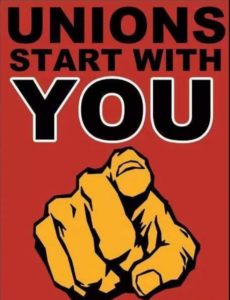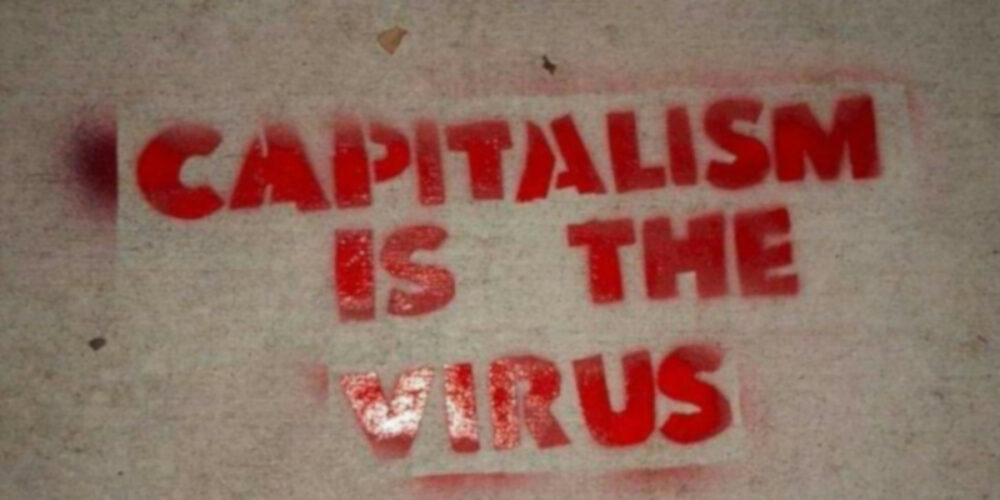The global coronavirus pandemic has exposed the crass nature of the capitalist system. In the early days, the so-called developed world hijacked, stole and diverted entire shipments of personal protective equipment; America purchased the entire global stock of the important covid-19 drug Remdesivir; more than a thousand people on the British cruise liner Braemar were abandoned on the high seas, blocked for weeks from disembarking at several ports in the Caribbean after an outbreak of covid-19 among the passengers and crew; Cuba alone stepped in and officially welcomed the vessel to dock and helped to get all the passengers home safely.
Covid-19 is not the cause of the crisis in capitalism: it has exposed the effects of underfunding and the creeping privatisation of public health, housing, education, and transport, the race to the bottom, the withdrawal by the state from the provision of public services, and the environmental catastrophe.
Workers’ share of what they produce has been falling since the 1970s. To achieve this, anti-union legislation and union-bashing tactics have been adopted globally to restrict the power of labour. With the balance of power now tipped firmly towards capital, workers would need a law degree to go on strike. And the final decision is made by the courts, as employers take out injunctions to stop strikes.
This has led to a decline in workers’ struggle as unions are forced to compromise rather than go on strike. It has led to a generation of trade unionists with little or no practical experience of struggle. Union density is at a record low point, facilitating a race to the bottom in terms and conditions. Precarious employment, temporary contracts, minimum-hour contracts, the gig economy, bogus self-employment, atrocious working conditions, low pay and high rents are forcing workers to accept what they can get, the crumbs from the table, just in order to survive.
We are up against a formidable enemy in capitalism, as this class controls the narrative in the news and the mass media, which are owned and controlled by the ruling class. If a journalist questions or probes too much they won’t be in a job for long. Journalists are now mainly freelance—or, to put it another way, no permanent contract, surviving from day to day. The media may not be able to tell us what to think, but they can tell us what to think about.
Despite workers suffering wage stagnation and an ever-decreasing share of the wealth we produce—contrasted with the flooding up of wealth to the point where eight men have accumulated more wealth than the poorest 50 per cent of humanity—the membership of trade unions is still declining. The ruling class has divided us, using every manner and means: race, religion, sexual orientation, status, job, address, dress—you name it: they use it against us to keep us apart.
Opportunist politicians repeat the mantra that “unions are useless, they are all on big salaries, are in league with the government and employers.” But “if you vote for us we’ll change everything”—only to be abandoned by the same people when they themselves are voted into a well-paid job, to side with employers and prop up the establishment.
This is not unique to Ireland: it’s the same throughout the “developed world,” from America to Europe and beyond. It’s not an accident: it has been in development and planning since neo-liberalism was launched in the 1970s as capitalism’s method of slashing labour’s share of what we produce, and clawing back concessions in public services achieved after the Second World War.
We have been betrayed time and time again by weak leaders and treacherous politicians. Trade unions are the members. You are the union. There are still nearly 800,000 members. Yes, many have become soft and conformist. That needs to change. But rather than moaning about it, all workers need to join a union. If union density is to increase above 50 per cent this alone would make us stronger.

But there is no point in merely joining: members have to play an active role, or the bureaucrats will continue to take the easy option. There is an old saying that says a union is like a wheelbarrow: only as good as the person pushing it. It’s time to organise and fight back—start pushing against the race to the bottom. Nothing is ever won without a fight.
We must mobilise to have the Industrial Relations Act and all anti-union legislation abolished, to win the right to union recognition, the right to union access, and collective bargaining rights.
This will give us power and the means to fight and bring an end to precarious employment, to win proper pay and conditions, to give us decency and dignity in our lives, in a world where everyone can reach their full potential and nobody is left behind.
With more security and certainty of income we can fight for more, without fear of the bailiff or starvation—fight to win back the social wage, universal public health, housing, and education.
The two-tier health system is symbolic of the two tier-society in Ireland today. During the pandemic, front-line workers have been the backbone of the fight to defeat the virus. We have power in our numbers. The golf dinner event exposed the contempt the ruling elite have for ordinary working people.
The Gardaí have been given power to shut down house parties but not meat factories. They partied, while we cocooned.
The game is up. It’s not a change of government we demand, it’s a complete change of system, so we all share the fruits of our labour. We must organise and end the system that allows a handful of people on earth to rule all of humanity.






